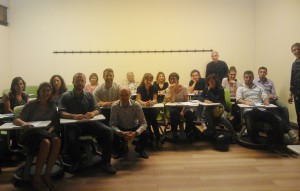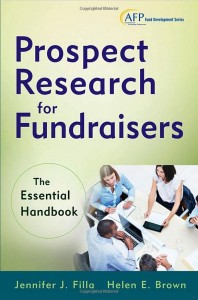A few people in various research forums have asked how Atom differs from other providers of network maps. I thought I’d run through a few of the key differences here.
First, Atom is a tailored service. Unlike other providers, which mainly if not exclusively offer subscription-only access to their database, in an Atom project we would work with you to identify your specific needs and then prepare a dataset to meet those needs. For example, we could provide a map showing the connections of your board, your most generous supporters or potential major prospects. We can provide you with online access to this map, along with a guide instructing you on how to use it. We provide a copy of the data gathered during the course of our research for you to import back into your database. Finally, we are also able to provide a report drawing attention to any items of particular interest within your map.
Second, in contrast to many other network map providers we do not limit the information we gather to business positions only. We only use data from reliable sources (Companies House, Bureau van Dijk/DASH, Debrett’s People of Today and Who’s Who, to name a few) and do not ‘harvest’ unverifiable data from the internet. We also include information on individuals’ non-business positions – so any charitable affiliations, club or society memberships, social or family connections, leisure interests, and so on.
Third, we make use of more information that we gather to draw connections. Several other network map providers do include educational information on the people in its database – but I’m not certain whether they draw connections on that basis, which Atom certainly does. We also draw connections between people on the basis of shared leisure interests. This doesn’t indicate a real-world connection of course, but is immensely useful in strategising. In fact, since Atom is a tailored service we are in principle able to include any data available in the public domain within our maps.
The upshot of this is that our maps potentially present a more rounded picture of the individuals within it. A report we published earlier this year on the basis of the data gathered for Atom projects since its launch in 2011 showed that half of all connections discovered were on the basis of non-business positions. Given that non-profits often have different aims from businesses when using maps this additional data is, we feel, vital. For example should a map of your board show that one of them is connected to a trustee of a major grant-maker via a shared membership of a London club, this could form the basis of a useful point of access.
Finally, we use a method of showing connections between individuals that takes into account not only shared positions at an organisation but also the time spent at that organisation. If two people have spent time at the same company, but during non-overlapping periods, then there’s no true basis for saying a connection exists between them. Atom takes this information into account, drawing direct links between individuals only where they’ve spent overlapping years at an organisation.


